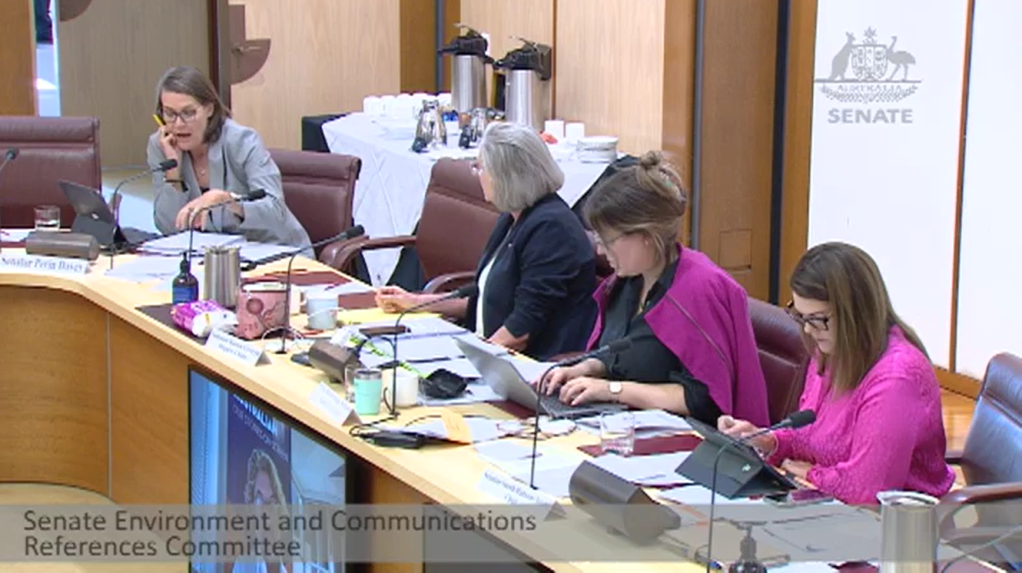Screen Producers Australia (SPA) CEO Matthew Deaner didn’t mince words at Tuesday’s public hearing into the National Cultural Policy in Canberra, telling a Senate Committee that some streaming businesses had been promoting misleading information about the policy to Parliament.
Deaner was one of several stakeholders invited to appear before the Environmental and Communications Reference Committee to discuss Revive, the government’s $286 million, five-year strategy that was announced at the beginning of last year.
Of keen interest to SPA and the broader screen industry is the introduction of content quotas for streaming services that operate in Australia, which Arts Minister Tony Burke has promised will be in effect no later than July 1.
Deaner used his opening statement to the committee to once again outline his organisation’s position, calling for a 20 per cent revenue investment obligation to be applied to streaming services, along with a clear definition of Australian content.
He then expressed concern about “misleading information” that had followed the government’s Targeted Consultation Paper – Refined Models at the end of last year and its omission of documentary from the proposed options.
“SPA has noted that since then some streaming platforms have treated this omission of documentary in this consultation as if it was an actual decision of the government and have circulated misleading information to Parliamentarians claiming that Australian documentaries such as The Test, The Story of the Wiggles and others would not be counted as Australian content,” he said.

Deaner expected streamers’ claims to “become increasingly shrill” in the coming months, noting a number were keen to “muddy the waters” between what constitutes Australian and international content.
“The critical difference is that just because a project is filmed on location in Australia, with some Australian cast and crew, it does not make it an Australian story, either in the eyes of Australian audiences or the regulator, the ACMA,” he said.
“It is important here to distinguish between the benefits of economic activity and achieving the aims of the National Cultural Policy for Australian audiences. SPA represents members from across the spectrum of the screen industry and those who work on both Australian and International location projects so what we are seeking here is an appropriate balance.”
“Both types of projects attract generous taxpayer support through the Location Incentive, the Post Digital Effects Offset and the Producer Offset, all of which are appreciated and welcomed. In policy terms, we think it is important that there’s a balance that continues to lean toward Australians telling genuinely Australian stories for this taxpayer support, and to that end – we believe that further reform is needed to the Producer Offset and the Post Digital Effects Offset so these can continue to appropriately support Australian stories.”



